Events
Bakar ClimatEnginuity Hub Symposium on Climate Change Technology
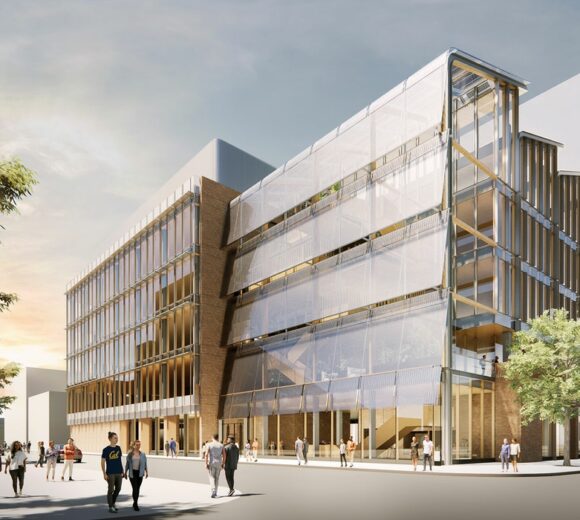
Background
What is the Bakar ClimatEnginuity Hub?
In partnership with QB3, the BCH will build a pipeline of funding and programming for academic internships, mentoring, networking, and investing to accelerate companies in climate technology fields. Building on UC Berkeley and LBNL strengths, including over 300 leading faculty working at the cutting edge of technology relevant to climate, focus areas will include: renewable energy; energy storage; carbon capture and sequestration; advanced building and manufacturing technologies; transportation technologies; and others. The new 145,000 square foot space and its programs will be located in a vibrant new innovation zone adjacent to downtown Berkeley and will open in 2028. The BCH is being designed to provide highly flexible wet laboratories and spaces,and scale-up capabilities to support startups rooted in chemistry, materials science, and rapid instrument prototyping, propelled by artificial intelligence and machine learning.
Registration is now closed as we are at capacity for the event.
Why is the Bakar ClimatEnginuity Hub needed?
The continuing use of fossil fuels (coal, petroleum, and natural gas) is contributing to a rise in the atmospheric concentration of CO2 and other greenhouse gasses, which retain heat on our planet and thereby impact both regional and global climate (weather patterns, drought, flooding) and, in turn, the stability and viability of human societies (food, water, forces for migration, human conflict). Novel technologies (renewable energy sources, energy storage, greener farming practices that reduce the formation of greenhouse gasses, greener methods of materials manufacture, capture of atmospheric CO2) are therefore needed to reduce the factors affecting climate change.
UC Berkeley and Lawrence Berkeley National Lab are conducting extensive research in areas that can reduce societal dependence on fossil energy and the CO2 footprint for the production of essential materials. The BCH will provide opportunities to translate these laboratory research findings to technologies that can impact the environment and mitigate climate change, leading ultimately to a zero-carbon footprint (no dependence on fossil energy and materials). Additionally, BCH plans to draw upon UC Berkeley’s business, law, public policy, natural resources, public health, and other schools and centers to educate entrepreneurs in translating research to technology and informing decision makers and the public about the health and economic impacts of climate technologies.
Goals
Our goals for the symposium are:
- To engage and inform academic and national laboratory partners in the concept and timeline for BCH.
- To illustrate how UC Berkeley and LBNL provide an unmatched academic, research, and entrepreneurial environment for a project like BCH.
- To examine the latest technologies that address climate change and are best suited for startup R&D in BCH.
- To brainstorm with potential industry, venture capital, and philanthropic partners about to support BCH programs and companies (from mentoring, to undergraduate internships, to growing startups).
Audience
This symposium is currently open only to faculty, postdocs, staff scientists, and students from UC Berkeley and LBNL.
Venue
All sessions will be held in the auditorium at Bakar Labs, located at 2625 Durant Ave., Berkeley, CA 94720.
Agenda
11:00–11:30 AM Registration and box lunches available
11:30–11:45 PM Welcome, introduction to symposium and Bakar ClimatEnginuity Hub (Berkeley Chancellor Rich Lyons, by video; Kathy Yelick, Alexis Bell, and David Schaffer, UC Berkeley)
11:45 AM–12:15 PM Keynote Speaker: Daniel Kammen, UC Berkeley
12:20-12:50 PM Nitash Balsara, UC Berkeley: Battery Materials Recycling
12:55-1:25 PM Robert Kostecki, LBNL: Energy Storage and Conversion
1:30-1:45 PM Coffee Break
1:45-2:15 PM Jessica Granderson, LBNL: Building Materials
2:20-2:50 PM Omar Yaghi, UC Berkeley: Carbon Capture and Utilization
2:55–3:25 PM David Hochschild, California Energy Commission: CA State Policy Required to Achieve Carbon Neutrality by 2045
3:30-4:00 PM Jill Fuss, Activate Berkeley: Bridging the Gap Between Invention and Commercialization
4:05-4:35 PM Ron Cohen, UC Berkeley & White House Office of Science & Technology Policy: From Research to Impact: A Federal Perspective on the Needs for Technologies that Contribute to Reducing GHG Emissions
4:35-5:00 PM General Discussion
5:00-6:00 PM Happy Hour
Registration is now closed as we are at capacity for the event.
Organizers
This symposium is organized by the QB3 team (QB3-Central at UC Berkeley). You can reach us at bakarclimatehub@berkeley.edu.
Speakers
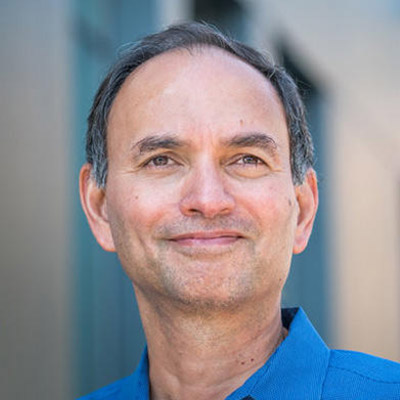
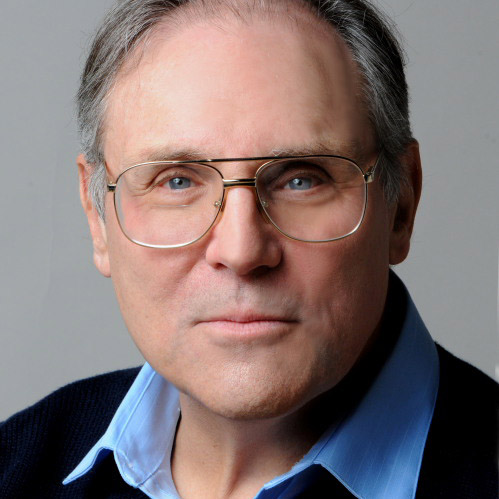
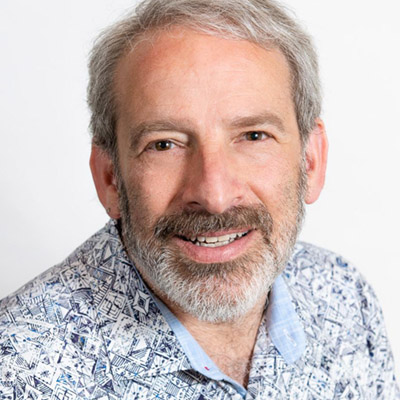
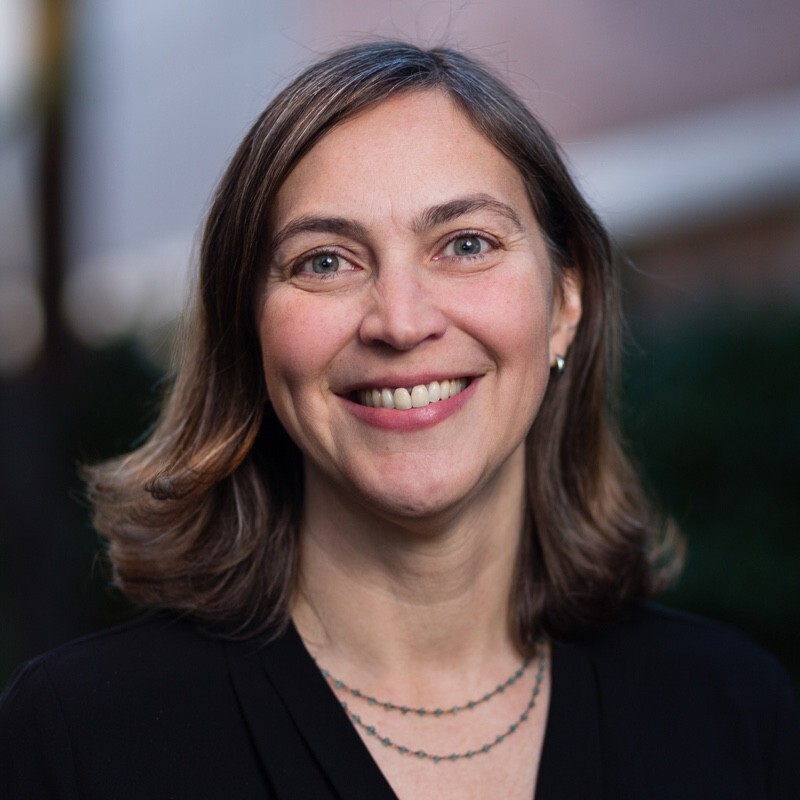
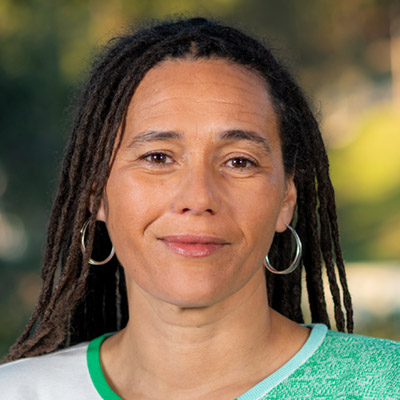
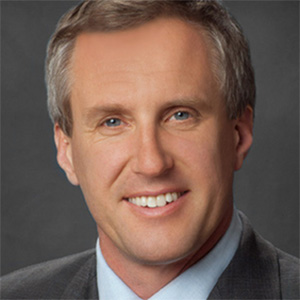
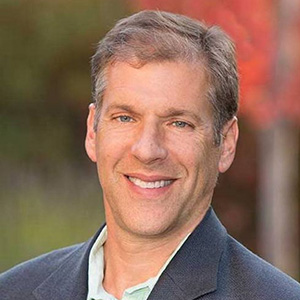
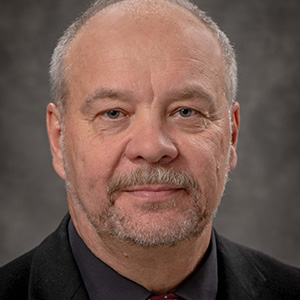
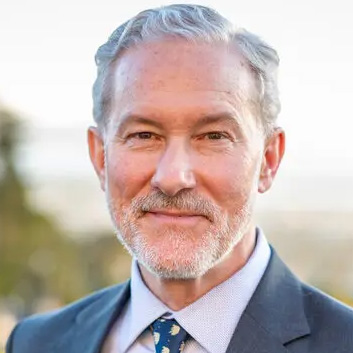
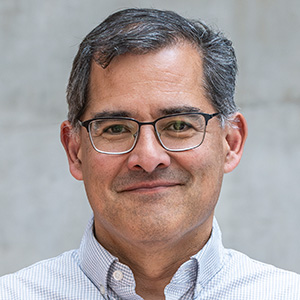
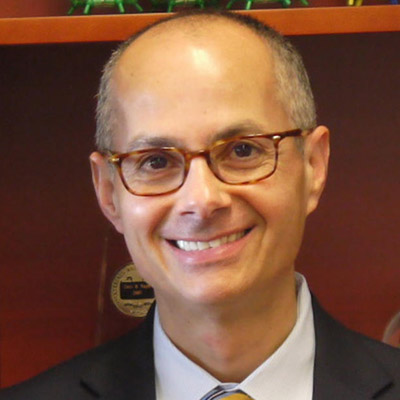
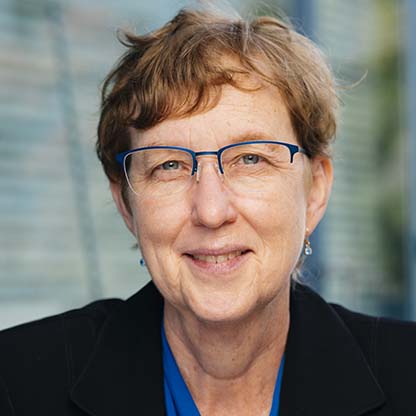
Bios
Dr. Nitash P. Balsara is the Charles W. Tobias Professor in Electrochemistry at the University of California, Berkeley. Prof Balsara specializes in the study of soft structures that self-assemble from the liquid state. His research program is based on soft microstructured materials such as block copolymer melts, polymer blends, and microemulsions.
Prof. Balsara did his B.Tech in Chemical Engineering from IIT Kanpur in 1982. He obtained his master’s degree from Clarkson University (USA) in 1984, and his PhD. from Rensselaer Polytechnic Institute (RPI) , the US, in 1998.
He did post-doctoral research at the University of Minnesota, and at Exxon Research and Engineering Company in Annandale, New Jersey. In 1992, he joined Polytechnic University in Brooklyn as an assistant professor of Chemical Engineering. In 2000, he accepted a joint appointment as professor of Chemical Engineering at the University of California, Berkeley, and faculty scientist at Lawrence Berkeley National Laboratory. He also co-founded two battery start-ups: Seeo, Inc., and Blue Current.
Prof. Balsara’s lab aims to study the self-assembly and transport properties of nanostructured polymer materials for applications such as lithium batteries. The work by the Prof. Balsara’s lab includes electrochemical characterization of different polymer electrolytes, studying the phase behavior of different block copolymers, along with observing the formation and growth of lithium dendrites through these electrolytes. Prof. Nitash P. Balsara is the recipient of the prestigious IITK Distinguished Alumnus Award 2019.
Professor Bell studies reaction mechanisms in order to identify factors limiting the activity and selectivity of catalysts. Reaction systems being investigated by his group include the synthesis of oxygenated compounds from COx (x = 1, 2), the conversion of alkanes to olefins and oxygenated products under oxidizing conditions, and the reduction of nitric oxide under oxidizing conditions. The objectives of his program are pursued through a combination of experimental and theoretical methods. Spectroscopic techniques, including IR, Raman, NMR, UV-Visible, and EXAFS, are used to characterize catalyst structure and adsorbed species under actual conditions of catalysis. Isotopic tracers and temperature-programmed desorption and reaction techniques are used to elucidate the pathways via which catalyzed reactions occur. Quantum chemical calculations are conducted to define the structure and energetics of adsorbed species and the pathways by which such species are transformed. The combined use of theory and experimental methods enables the attainment of a deeper understanding of the core issues of interest than can be achieved by the use of either approach alone.
Ronald C. Cohen is a Distinguished Professor of Chemistry and of Earth and Planetary Science at UC Berkeley. He currently on leave, serving in the Biden Harris Administration as Director of the Greenhouse Gas Measurement, Monitoring, Reporting and Verification Office, in the Office of Science and Technology Policy. At Berkeley, Cohen was Executive Associate Dean in the College of Computing, Data Science, and Society 2022-2024, Vice Chair and the Chair of the Berkeley Division of the Academic Senate, 2020-2022, Director of the UC Berkeley Atmospheric Science Center from 2006-2016 among other roles. He was the Chief Scientist at Secured Carbon, a company aiming to provide financing for projects coupled to verified greenhouse gas emission reductions, 2022-2024. He is a fellow of the American Association for the Advancement of Science and the American Geophysical Union. Cohen is co-author of over 325 peer-reviewed scientific publications. He has mentored over 50 PhD students and postdoctoral fellows and over 50 undergraduates in their research.
Cohen is known for his work using atmospheric observations from the surface, aircraft and instrument in Earth orbit to gain insight into the atmospheric nitrogen cycle, the temperature dependence of urban ozone and for development of a unique approach to observing urban emissions of greenhouse gases and of air pollutants, the Berkeley Environment, Air Quality and CO2 Network (BEACO2N). Cohen’s BEACO2N project was the first large scale urban mapping project for CO2 and it was one of three “Climate Data in Action” efforts recognized in the Obama administration’s Climate Data Initiative in summer 2014. Recently, the project reported ~2% per year decreases in Bay Area CO2 emissions for the 5 year period 2018-2022. It is a hub for education and outreach to underrepresented K-12 students including a suite of Jupyter notebooks bringing data science and climate science to the high school classroom.
Jill Fuss, Ph.D. is the managing director of Activate Berkeley. Activate is a non-profit that provides early-stage science entrepreneurs with funding, technical resources, and a network of support through a two-year fellowship model. In Berkeley, Activate partners with the Cyclotron Road program at Lawrence Berkeley National Laboratory. Dr. Fuss earned a B.A. in environmental science from Wesleyan University, and a Ph.D. in molecular and cell biology from the University of California, Berkeley. Her postdoctoral fellowship was performed at LBNL where she received a National Institutes of Health National Research Service Award and was named a U.S. Department of Energy Outstanding Mentor. As a research scientist at LBNL, she conducted fundamental cancer research understanding the structural biology of DNA repair enzymes and received two LBNL Director’s Awards for Exceptional Achievement. Dr. Fuss co-founded Cinder Biological, Inc. to commercialize extreme enzymes for industrial use and was the company’s CTO and COO until 2021. Dr. Fuss was recognized as a Berkeley Visionary by the Berkeley Chamber of Commerce in 2015 and was an Activate fellow at Cyclotron Road from 2018-2020.
Dr. Jessica Granderson is a Senior Scientist and Director of the Building Technology and Urban Systems Division at the Lawrence Berkeley National Laboratory. She is a member of the Whole Building Systems Department. Dr. Granderson holds a PhD in Mechanical Engineering from UC Berkeley, and an AB in Mechanical Engineering from Harvard University. Her research focuses on energy management and information systems (EMIS), fault diagnostics and control, and advanced measurement and verification. She is the recipient of the 2015 Clean Energy Education and Empowerment (C3E) Award for Leadership in Research, and the 2020 Federal Laboratory Consortium Award for Excellence in Technology Transfer, and was a 2020 Women @ the Lab honoree. From 2021-2022 Dr. Granderson served as the Director for Building Technology at the White House Council on Environmental Quality.
David Hochschild was appointed chair of the California Energy Commission by Governor Gavin Newsom in February 2019. He fills the environmental position on the five-member Commission where four of the five members are required by law to have professional training in specific areas – engineering or physical science, environmental protection, economics, and law.
Chair Hochschild’s career has spanned public service, environmental advocacy, and the private sector. He first got involved in the solar energy field in 2001 in San Francisco as a special assistant to Mayor Willie Brown where Chair Hochschild launched a citywide $100 million initiative to put solar panels on public buildings. He also cofounded the Vote Solar Initiative, a 60,000-member advocacy organization promoting solar policies at the local, state, and federal levels. He was executive director of a national consortium of leading solar manufacturers and worked for five years at Solaria, a solar company in Silicon Valley. From 2007 to 2008, he served as a commissioner at the San Francisco Public Utilities Commission.
For his work to advance clean energy, Chair Hochschild was awarded the Sierra Club’s Trailblazer Award, the American Lung Association’s Clean Air Hero Award, and the U.S. Department of Energy’s Million Solar Roof True Champion Award. Chair Hochschild holds a bachelor of arts from Swarthmore College and a master of public policy from the John F. Kennedy School of Government at Harvard University. He also was a Coro Fellow in Public Affairs.
Daniel Kammen is the James and Katherine Lau Distinguished Professor of Sustainability at the University of California, Berkeley, with parallel appointments in the Energy and Resources Group, the Goldman School of Public Policy, and the department of Nuclear Engineering. His work is focused on decarbonization, energy access, and climate justice. He has served as Senior Advisor for Energy and Innovation at the US Agency for International Development (USAID). Kammen is a Coordinating Lead Author for the IPCC. He is the Co-Chair of the UC Berkeley Roundtable on Climate and Environmental Justice (http://ceej.berkeley.edu)
Kammen was appointed the first Environment and Climate Partnership for the Americas (ECPA) Fellow by Secretary of State Hilary R. Clinton in April 2010 and served as Science Envoy for Secretary of State John Kerry (2016- 2017).
His research is focused on the science and policy of decarbonized energy systems, energy access, and environmental justice. He has published more than 450 papers, which are available on his laboratory website, the Renewable and Appropriate Energy Laboratory (RAEL, http://rael.berkeley.edu). His research is currently focused on: decarbonization of power systems around the world; energy access and social justice; materials science for low-carbon economies; big-data approaches to clean transportation, and on the electrification of health facilities across Africa (HETA).
Kammen has founded or is on the board of over 10 companies, and has served the State of California and US federal government in expert and advisory capacities. Kammen was the First Chief Technical Specialist for Renewable Energy and Energy Efficiency at the World Bank (2010 – 2011).
Kammen was educated in physics at Cornell and Harvard, and held postdoctoral positions at the California Institute of Technology and Harvard. Before moving to the University of California, Berkeley, he was Assistant Professor and Chair of the Science, Technology and Environmental Policy Program at the Princeton School of Public and International Affairs.
Dr. Kammen has served as a contributing or coordinating lead author on various reports of the Intergovernmental Panel on Climate Change since 1999. The IPCC shared the 2007 Nobel Peace Prize.
Kammen serves on the Advisory Committee for Energy & Environment for the X-Prize Foundation. He is on the board of Native Renewables (Flagstaff, AZ); The Mpala Research Center (Nanyuki, Kenya), the Chabot Space and Science Center (Oakland, CA), The Human Needs Project/Kibera Town Center (Nairobi, Kenya).
Kammen was elected to the American Academy of Arts and Sciences in 2020.
He is a member of the Diversity Scholars Network, https://lsa.umich.edu/ncid/engagement-opportunities/diversity-scholars-network.html
Robert Kostecki is a Senior Scientist and Division Director of the Energy Storage and Distributed Resources (ESDR) Division in the Energy Technologies Area in Lawrence Berkeley National Laboratory. He is responsible for ESDR scientific, programmatic and strategic leadership in the areas of energy and environment through expanding existing research programs, assistance with development and maintenance of sponsor and partner relationships and creating new research initiatives. Robert received his Ph.D. degree in Chemistry from the University of Geneva (Switzerland) in 1994. He has (co-)authored more than 110 papers in refereed journals, 16 conference proceedings papers, more than 240 meeting presentations and 30 patents and invention disclosures. He is Vice President of the International Society of Electrochemistry and an active member of numerous scientific societies and committees; organizer and chair of numerous symposia; and workshops and government-university-industry research meetings.
Rich Lyons began his term as the 12th Chancellor of the University of California, Berkeley, on July 1, 2024, as the first undergraduate alum to serve as Chancellor, receiving his BS degree from Berkeley in 1982.* He returned to Berkeley in 1993, joining the faculty after earning his Ph.D. in Economics from MIT and following six years on the faculty at Columbia University.
Rich’s CV details his various roles and experience.
Rich’s pioneering work as a scholar focuses on how information within a society is aggregated and expressed in price signals, which in turn helps societies to make better decisions. Most of that work focuses on international exchange rates, i.e., the prices of all of one country’s goods and services relative to another. His book The Microstructure Approach to Exchange Rates was instrumental in defining the field.
Lyons is also known for culture leadership – anchoring institutions on distinctive values that help create a cohesive community with a shared understanding of, and support for, the mission. He is a powerful advocate for public higher education that is both accessible and excellent, reflected in his favored phrase that, “It is stunning – singular even – what Berkeley is able to achieve at the scale that it achieves it.” Culture leadership in his view also connects to the “why” of great education, including not just knowledge and thinking tools, but also exposure to opportunities, which he views as fundamental to personal development. You can’t be what you can’t see – Berkeley is an engine for people to see in themselves what they could not see, imbued with a sense of stewardship for the greater good that is a signature for this public university.
Prior to serving as Chancellor, Rich served as both the Dean of Berkeley’s Haas School of Business and, over the most recent 4+ years, led the development and expansion of innovation and entrepreneurship campuswide. He did not realize how much he would enjoy fundraising when he first took the Dean role: Partnering with others to fund the future of the institution that has had more impact on his life than any other has been enjoyable and meaningful. Overseeing innovation and entrepreneurship at a university that is not just great at creating enterprises in the civic and public sectors, but is in fact #1 in the world for creating venture-funded startups (source: Pitchbook) has helped sharpen a lens on how Berkeley can participate more in all the value, economic and otherwise, that it creates, and do so in a way fully consistent with advancing its core mission (producing long-term societal benefit(link is external)) and distinctive values.
Rich is an ardent supporter of the student experience, which comes in part from his own experience of the transformative effect of a Berkeley education. In 1998 he was awarded the Distinguished Teaching Award, Berkeley’s highest teaching award, which recognizes “sustained excellence in teaching that incites intellectual curiosity in students, inspires colleagues, and makes students aware of significant relationships between the academy and the world at large.” Asked at a meeting among colleagues what his “six-word memoir is,” Rich responded with “long-term love affair with ideas, learning.”
Rich often provokes people with the question, “just imagine where Berkeley would be without the momentous contributions to academic excellence and accessibility made possible by our alumni.” As an alum himself, and contributor since shortly after leaving Berkeley in the 1980s, Rich delights in mixing it up with alumni and working together to steward this remarkable university, truly one of society’s most important, and distinctive, assets.
*Also a UC Berkeley undergraduate alum, Robert Sproul was appointed President of the UC system in 1930.
David Schaffer is the Hubbard Howe Professor of Chemical and Biomolecular Engineering, Bioengineering, and Molecular and Cell Biology at the University of California, Berkeley, and he also serves as the Executive Director of QB3 and the Director of the Bakar BioEnginuity Hub, Bakar Labs, Bakar Fellows, and Bakar ClimatEnginuity Hub. He completed his B.S. in chemical engineering at Stanford University in 1993, his Ph.D. in chemical engineering at MIT in 1998, and a postdoctoral fellowship at the Salk Institute for Biological Studies in 1999 before joining Berkeley in 1999. There, he applies engineering principles to optimize gene and stem cell therapies, work that includes developing the concept of applying directed evolution to engineer targeted and efficient viral gene therapy vectors as well as new technologies to investigate and control stem cell function. He has published >250 papers, has advised >90 graduate students and postdoctoral fellows, is an inventor on >50 issued patents, and developed technologies that are being used in 9 human clinical trials. In addition, he has co-founded eight companies, including 4D Molecular Therapeutics (NASDAQ FDMT), Ignite Immunotherapies (acquired by Pfizer) and Rewrite (acquired by Intellia). Finally, he has received recognitions including the National Academy of Inventors, Andreas Acrivos Professional Progress Award, the American Institute of Chemical Engineers Pharmaceutical and Bioengineering Award, the American Chemical Society Marvin Johnson Award, and the Biomedical Engineering Society Rita Shaffer Young Investigator Award.
Omar M. Yaghi received his Ph.D. in Chemistry from University of Illinois at Urbana-Champaign, and was an NSF Postdoctoral Fellow at Harvard University. He is the James and Neeltje Tretter Chair Professor of Chemistry at University of California, Berkeley. He is the Founding Director of the Berkeley Global Science Institute whose mission is to build centers of research in developing countries and provide opportunities for young scholars to discover and learn, and the Co-Director of the Kavli Energy NanoSciences Institute focusing on the basic science of energy transformation on the molecular level, as well as the California Research Alliance by BASF supporting joint academia-industry innovations.
His work encompasses the synthesis, structure and properties of inorganic and organic compounds and the design and construction of new crystalline materials. He is widely known for pioneering several extensive classes of new materials: Metal-Organic Frameworks (MOFs), Covalent Organic Frameworks (COFs), and Zeolitic Imidazolate Frameworks (ZIFs). These materials have the highest surface areas known to date, making them useful for hydrogen and methane storage, carbon capture and conversion, water harvesting from desert air, and catalysis, to mention a few. The building block approach he developed has led to an exponential growth in the creation of new materials having a diversity and multiplicity previously unknown in chemistry. He termed this field ‘Reticular Chemistry’ and defines it as ‘stitching molecular building blocks into extended structures by strong bonds’. His work on MOFs, COFs, and ZIFs led to over 300 published articles, which have received a total of more than 200,000 citations. He has an h-index of 171 and ranked as the second most impactful chemist worldwide (Top 100 Chemists, Thomson Reuters, 2011).
Yaghi is an elected member of the U.S. National Academy of Sciences (2019), American Academy of Arts and Sciences (2022), and the German National Academy of Sciences Leopoldina (2022). He has also been honored with many awards, including the Sacconi Medal of the Italian Chemical Society (2004), Materials Research Society Medal (2007), American Chemical Society Award in the Chemistry of Materials (2009), Royal Society of Chemistry Centenary Prize (2010), King Faisal International Prize in Science (2015), Albert Einstein World Award of Science (2017), BBVA Foundation Frontiers of Knowledge Award in Basic Sciences (2017), Wolf Prize in Chemistry (2018), Eni Award for Excellence in Energy (2018), Gregori Aminoff Prize by the Royal Swedish Academy of Sciences (2019), August-Wilhelm-von-Hofmann-Denkmünze of the German Chemical Society (2020), Royal Society of Chemistry Sustainable Water Award (2020), Belgium’s International Solvay Chair in Chemistry (2021), and VinFuture Prize for Emerging Science and Technology (2021).
Katherine A. Yelick serves as Vice Chancellor for Research with overall responsibility for UC Berkeley’s research endeavor. She provides primary leadership in research policy, planning, and administration, including relations between the university and industry, research compliance, research communications, and research support for the Berkeley campus. Her administrative portfolio includes management of over fifty campus research units, twelve research museums and remote field stations, and research administration offices including the Office of Research Administration and Compliance, the Office of Laboratory Animal Care, the Office of the Chief Innovation and Entrepreneurship Officer and the Office of Intellectual Property & Industry Research Alliances (IPIRA).
She is the Robert S. Pepper Distinguished Professor of Electrical Engineering and Computer Sciences and served previously as Executive Associate Dean in the Division of Computing, Data Science and Society (CDSS). She is also a Senior Faculty Scientist at Lawrence Berkeley National Laboratory. Her research is in high performance computing, programming systems, parallel algorithms, and computational genomics. She is well known for her work in Partitioned Global Address Space languages, including co-inventing the Unified Parallel C (UPC) and Titanium languages. She has worked on interdisciplinary teams developing scientific applications ranging from simulations of chemistry, fusion, and blood flow in the heart to analysis problems in phylogenetics and genome assembly. She currently leads the ExaBiome project on Exascale Solutions for Microbiome Analysis, part of the Department of Energy’s Exascale Computing Project.
Yelick was Director of the National Energy Research Scientific Computing Center (NERSC) from 2008 to 2012 and the led the Computing Sciences Area at Berkeley Lab from 2010 through 2019, where she oversaw NERSC, the Energy Sciences Network (ESnet) and the Computational Research Division of scientists and engineers in applied math, computer science, data science and computational science. She earned her Ph.D. in Electrical Engineering and Computer Science from MIT and has been a professor at UC Berkeley since 1991 with a joint research appointment at Berkeley Lab since 1996.
Yelick is a member of the National Academy of Engineering and the American Academy of Arts and Sciences. She is a Fellow of the Association for Computing Machinery (ACM) and the American Association for the Advancement of Sciences (AAAS). She is a recipient of the ACM/IEEE Ken Kennedy award, the ACM-W Athena award, and the 2019 LBNL Director’s Award for Lifetime Achievement. She previously served as a member of the Computing Community Consortium (CCC), the National Academies Computer Science and Telecommunications Board (CSTB), the California Council on Science and Technology and the LLNS/LANS Science and Technology Committee overseeing research at Los Alamos and Lawrence Livermore National Laboratories.



